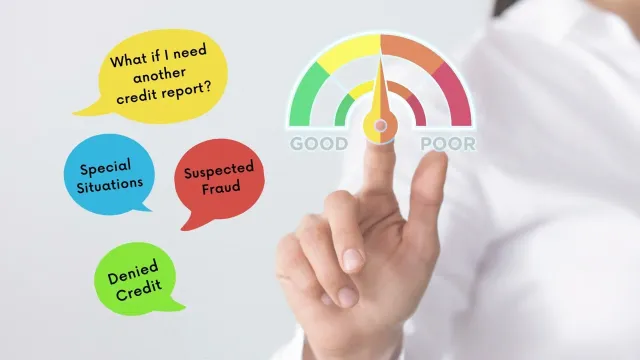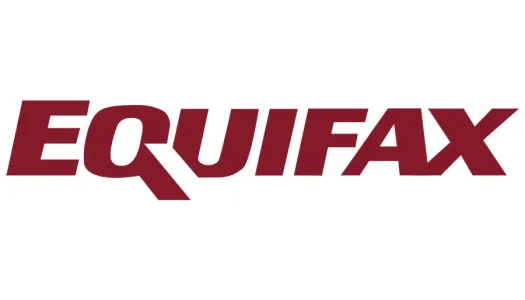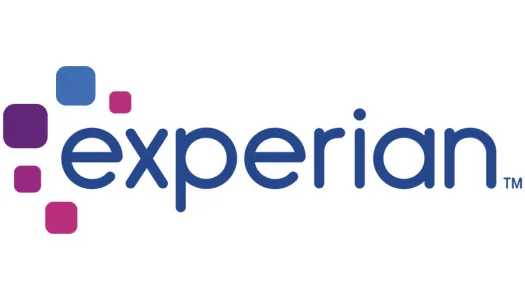What is a Credit Report?
A credit report is a record of your credit history that includes information about your existing credit, public records, such as court judgments or tax liens, and inquiries about you. Your name, address, full or partial Social Security number, date of birth, and possibly employment information, are commonly included. Current and fully paid or closed credit obligations will be listed, such as credit card accounts, mortgages, car loans, and student loans. It may also include the terms of your credit, how much you owe your creditors, and your history of making payments.
Credit reporting agencies sell the information in your report to lenders, employers, financial companies, and other businesses that use it to evaluate your applications for credit, insurance, employment, or renting or buying a home. A list of who recently requested a copy of your report will also be reflected on the report.
Benefits of Checking Your Credit Report
By reviewing your credit report, you will have a better understanding about what it says and what is included. It’s also an opportunity to identify, question, and dispute any errors that may appear on your report. These actions will help you maintain and potentially increase your score and overall report.
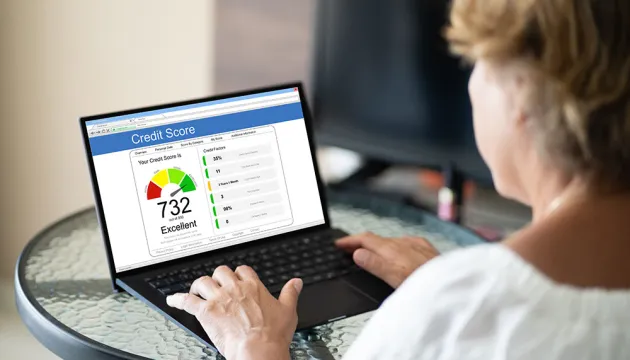
How to Get Your Credit Report
Under the Fair Credit Reporting Act (FRCA) consumers are entitled to one free credit report per year from each of the three major credit reporting agencies – Equifax, Experian, and TransUnion. In September 2023, these credit reporting agencies agreed to offer free credit reports weekly instead of once per year to encourage consumers to regularly check their credit data and build and protect their financial health. To get a free credit report, visit AnnualCreditReport.com or call 877-322-8228.
How Do You Dispute an Error on Your Credit Report?
It is important to regularly check credit reports for accuracy and to address any errors or discrepancies to avoid negative impacts on borrowing opportunities. Errors can be common on at least one of the three credit reports. These errors can negatively impact their credit scores, which may affect their ability to secure loans, credit cards, apartments, and even employment. If an error is found on a credit report, under the Fair Credit Reporting Act (FCRA), you have the right to dispute it by following the specific credit reporting agency’s dispute instructions. Check your credit reports annually to ensure the information is accurate and up to date.
What is Credit History?
How and when you’ve managed the paying off debts, such as credit cards and loans makes up your credit history. This history is recorded in your credit reports, which is why it’s important to know and understand your credit history.

What if I Have No Credit History?
More than 45 million consumers are considered to be either credit unserved or underserved in the United States, according to a 2022 global TransUnion study. If you are a young adult or need to start building a credit history or rebuild after not having credit for a long time, the following ways can help.
A secured credit card requires a cash deposit as collateral for the credit limit and is a good option for those with little or no credit history.

Many gas stations and retail chains offer credit cards that can only be used in their stores and online channels. It can be easier and faster to get approved for this type of credit card.

A co-signer is someone with a credit history who provides their financial information and signs another person’s loan application by pledging to repay the loan if it goes unpaid.

A credit card holder can add a family member or trusted person to their account as an authorized user so that they can start building a positive credit history if the payments are made on time.
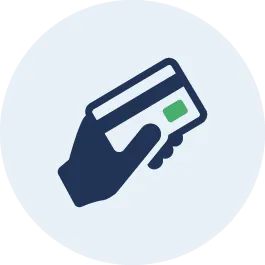
Place a Security Freeze on Your Credit Report
If you have concerns and wish to add extra protection against fraud, consider placing an extended fraud alert or credit freeze to your credit report. While an extended fraud alert makes it harder for scammers to open new accounts for seven years, a credit freeze limits access to your credit report for both you and others and lasts indefinitely unless you lift or remove it.
Fair Credit Reporting Act
The federal Fair Credit Reporting Act promotes the accuracy and privacy of information in the files of the nation’s credit reporting agencies. It also allows you to dispute information on your credit report.
Frequently Asked Questions
You can initiate a dispute by searching for the contact details of one of the three major consumer reporting agencies: TransUnion, Equifax, or Experian, or by directly contacting your credit union. To file a direct dispute with your credit union, you need to send a formal notice to the address provided by the credit union on your consumer report, or an address specifically indicated for dispute submissions. If no such address is available, you may send your notice to any business address associated with the credit union. Your dispute notice should include specific information, such as enough details to identify the account or relationship in question, the exact information you are disputing, and your reasons for the dispute. Additionally, consumers must include any supporting documentation or relevant information requested by the furnisher to substantiate their dispute. This may include items like a copy of the relevant section of the consumer report that contains the disputed information, a police report, a fraud or identity theft affidavit, a court order, or account statements.
A consumer report can be requested by a credit union when you seek to obtain a loan, which includes credit for making a purchase. In this scenario, the credit union has a legitimate purpose for seeking the report and does not require specific authorization, regardless of how the credit application is submitted—whether in person, by phone, by mail, or online. Importantly, the fact that credit is ultimately not granted does not make the request for a credit report improper. The credit union does not violate your privacy by obtaining your consumer report when you seek a loan nor are they required to obtain your permission when they report information about your payment performance to a consumer reporting agency.
The credit union can report your personal information to the consumer reporting agencies in accordance with Regulation P, which allows the credit union to report information about you to a consumer reporting agency. Also, under Regulation P, you have no right to opt out of having the credit union report your personal information to the credit reporting agencies. Regulation P does not apply when a credit union discloses nonpublic personal information to a consumer reporting agency in accordance with the Fair Credit Reporting Act.
It is important to note that the credit union does not calculate your credit score, but the national consumer reporting agencies use proprietary software to determine how the score is calculated using a scoring model. FICO is just one of many scoring models. FICO has identified the following categories and weights of each factors used to generate FICO scores:
- Payment History (35%);
- Amounts Owed (30%);
- Length of Credit History (15%);
- New Credit (10%); and
- Types of Credit in Use (10%).
When a lender tells you that your credit utilization is high, that means you are using a large percentage of your available credit. This can have a significant negative impact on your credit score. Being aware of this can help you make more cautious financial decisions. Credit utilization is a critical factor in determining your credit score. Lenders might be less willing to extend new credit to you, or they may offer less favorable terms, such as higher interest rates.
Installment loans (mortgages, auto loans, student loans and personal loans) are not included in the credit utilization ratio. These loans are repaid over a fixed period with set monthly payments. They affect your credit score through your payment history and the overall amount of debt you carry, but they are not part of the utilization calculation.
Your credit utilization ratio includes only revolving credit accounts. Examples of these accounts are credit cards, personal lines of credit, and home equity lines of credits (HELOCs).
Your credit utilization is calculated by comparing the amount of credit you’re using to your available credit. Here’s how you can calculate it.
- Add Up Your Balances – Sum the balances on all your credit cards.
- Add Up Your Credit Limits – Sum the credit limits on all your credit cards.
- Divide and Multiply – Divide the total balance by the total credit limit, then multiply by 100 to get a percentage.
For Example: If you have a total balance of $2,000 and a total credit limit of $10,000, your credit utilization ratio would be 20%. If you have a total balance of $3,500 and a total credit limit of $10,000, your credit utilization ratio would be 35%. Using below 30% of your available credit or your credit limits is suggested because using less is better for your score.
A FICO score is a type of credit score created by a specific algorithm used by the Fair Isaac Corporation (FICO). It’s one of the most widely used credit scoring models by lenders to assess risk. A credit score is a numerical representation of your creditworthiness, which is a measure of how likely you are to repay a loan. It’s based on your credit history and helps lenders assess the risk of lending you money. Lenders may use different types of credit scores depending on their preferences, the industry, and the specific type of credit or loan you are applying for.
A hard inquiry means that someone has requested to look at your credit report to determine your creditworthiness. Hard inquiries typically occur when you apply, for instance, for a new credit card, car loan or mortgage. Hard inquires will show up on your credit report and may stay there for two years. Additionally, hard inquiries may lower your credit score.
